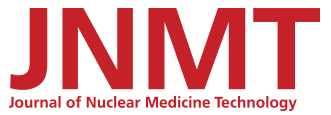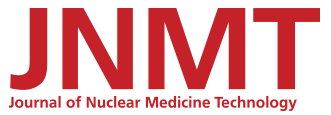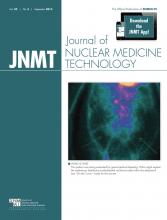Some technologists wonder if the Society hears them and knows about the problems that are affecting them. As speaker of the National Council of Representatives (NCOR), I can truthfully say that the Society hears you loud and clear. This past annual meeting in St. Louis we heard problems, addressed problems, and heard some solutions to past problems.
The NCOR is an interesting collection of technologists and professionals. If you are a member of SNMMI-TS, you know at least one person on this council: your delegate. That person is one of your voices, and if you have any question or issue, you can approach your delegate, who will bring it to the council. At the council, items are discussed and other viewpoints are contributed in hopes of finding solutions. Items are passed up the line to the SNMMI-TS executive board for action and further recommendation. I wear two hats, not only serving as speaker but also having a seat on the executive board, where I represent the NCOR. If for some reason you do not know who your delegate is, there is a listing on the SNMMI-TS website along with e-mail contact information. If you do not want to approach your delegate, please contact me.
Leonas “Leo” Anthony Nalivaika, MBA, CNMT, RT(N), FSNMMI-TS
During this past annual meeting, we broached several issues that affect us all. There will soon be a shortage of molybdenum; at the meeting, leading experts reported to us on this issue. A new scope of practice was reviewed and approved not only by the NCOR but also by the executive board. This scope is an important tool for all of us in defining what we do and what we can do in our daily practice. A report was discussed on Centers for Medicare and Medicaid Services (CMS) changes in regard to direct supervision and how the Society worked with CMS in instituting these changes. This type of increased collaboration between the Society and CMS helps us work toward positive and realistic outcomes. The job shortage issue is one that has been discussed by the NCOR for as long as I have been there. We know there are job shortages, economic changes not under our control, computerization, and encroachment by other medical professionals on our profession. One issue that was brought forward was that a technologist who performs multiple studies at once can be a detriment to patient safety. This issue has been taken up by the current SNMMI-TS president to be examined and acted on in the current year. I strongly suggest that if you discern any problems within our profession, you address them with your NCOR delegate. I hope that your delegate is also disseminating information from the NCOR level to you.
We received reports from the American Registry of Radiologic Technologists (ARRT) and the Nuclear Medicine Technology Certification Board (NMTCB). The NMTCB has a new CT registry exam that will be implemented in the fall; more information is on the NMTCB website (www.nmtcb.org). The ARRT discussed its new policy on continuing education, which affects those who are now taking registry exams for the 10-year period.
This September, I will be attending the executive board meeting. Before that meeting, I will solicit the NCOR for issues to put before the executive board; if you have any, please contact your NCOR delegate. We also participate in conference calls to keep abreast of any developing or potential issues that may affect us and our profession. I look forward to working with our president, April Mann, as well as our president-elect, Aaron Scott. This year I had the pleasure of working with Scott Holbrook, currently the past president.
There are still many issues and conundrums that affect our profession, and it is through your proactive membership that many of these may be resolved. Any suggestions and solutions are always welcomed.
Last, on behalf of the NCOR and all its members, I would like to congratulate Nikki Wenzel-Lamb (director of leadership and SNMMI-TS administrator) and her husband on the arrival of their son. Best wishes to the new family.








